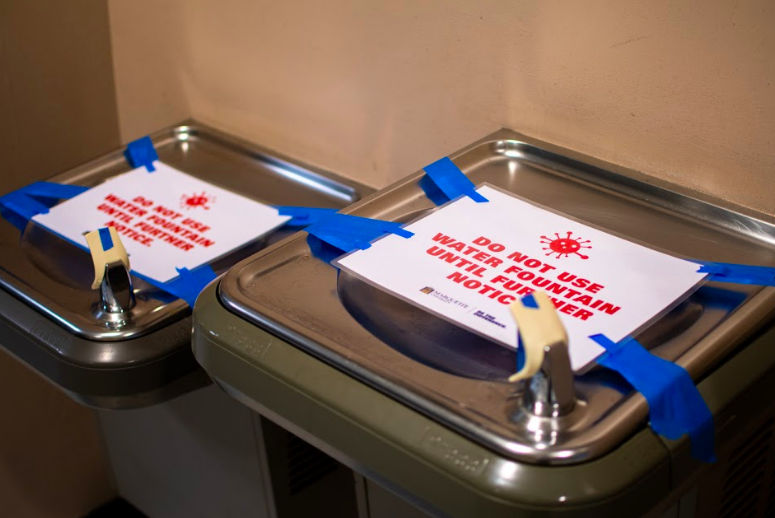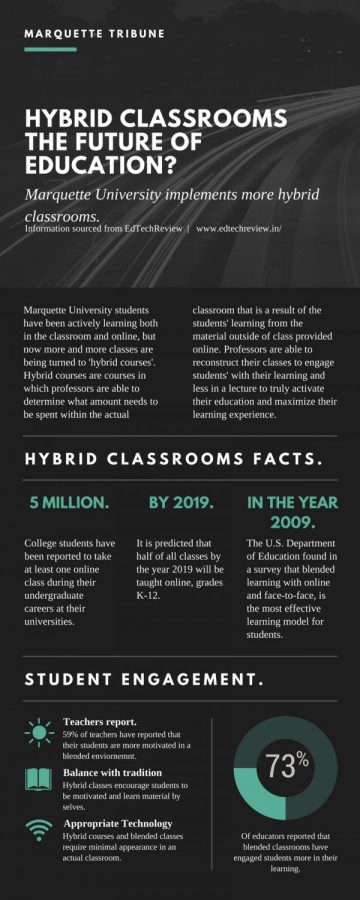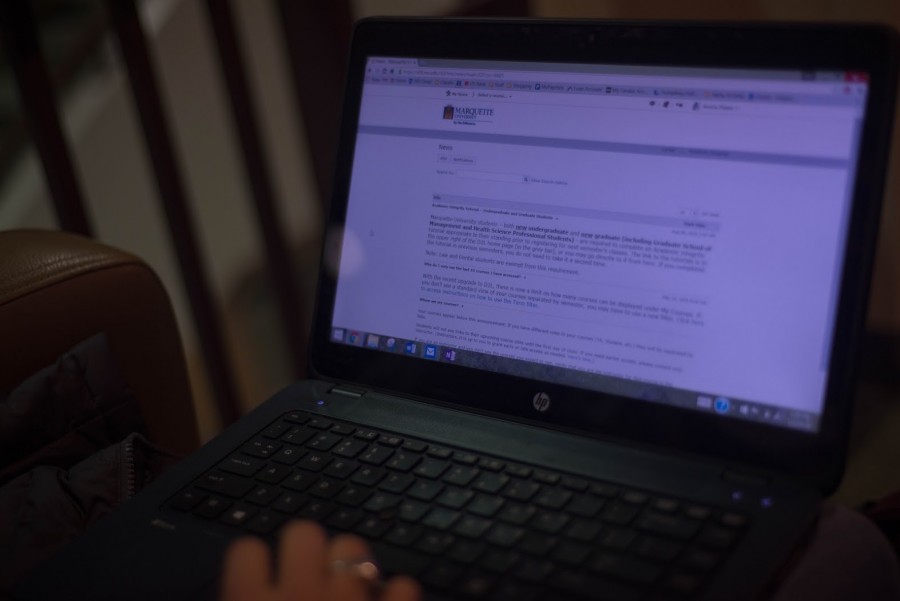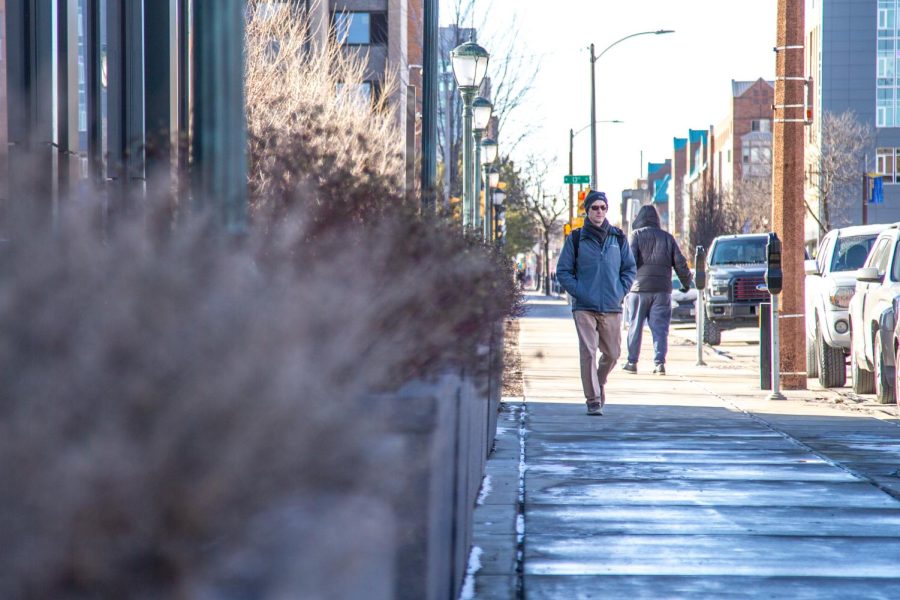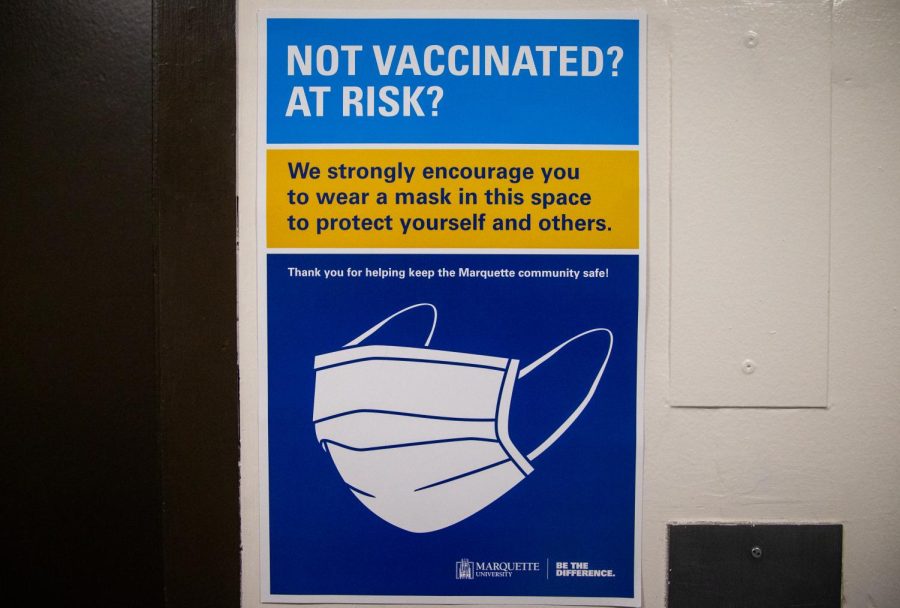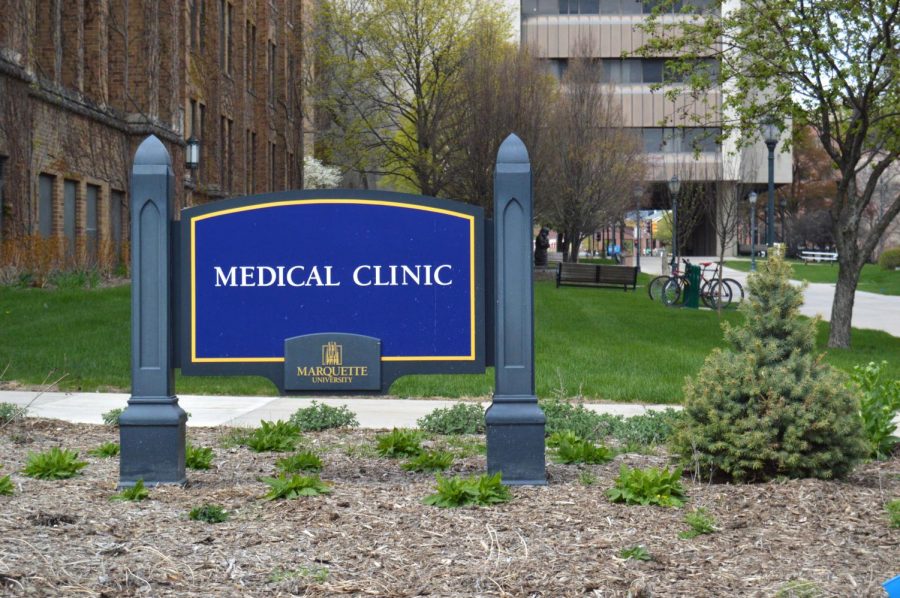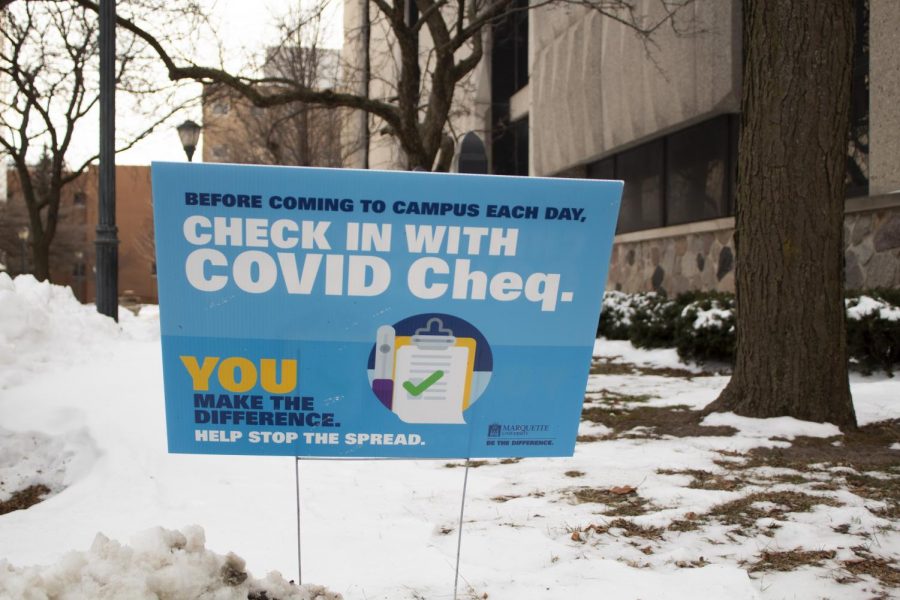With COVID-19 upending much of traditional college life, Marquette University has altered some of its policies to navigate the world during a pandemic and ensure student safety and success, according to John Su, vice provost for academic affairs.
“Instructors are expected to make reasonable accommodations for students who miss classes due to COVID-19 exposure to make up classwork and/or get notes from a lecture,” Su said in an email. “Labs, clinicals and other field-based classes are the exceptions to this because it may be impossible to make up classwork in these types of classes.”
Su said that students are expected to contact their professors to ensure they can make up the materials for the classes they missed due to COVID-related absences. He said that the most important thing is for students to maintain constant communication with their instructors.
Students were required to complete online COVID-19 training before returning to campus, which included informational videos and quizzes about the material learned. After completing the training, students agreed to the community standards pledge, which outlined rules that students agreed to follow while on campus.
As part of the community standards pledge, students are expected to abide by the university’s guidelines in areas such as health and wellness, campus movement and personal and community well-being. These guidelines include wearing masks, sanitizing shared surfaces such as desks in classrooms, maintaining appropriate social distancing and washing hands frequently and thoroughly.
Students must also complete the COVID-Cheq survey every morning and get verification before attending in-person classes. Access to certain campus spaces, such as dining halls, requires proof of that day’s verification.
According to an Aug. 24 university news release detailing class attendance and withdrawal guidelines, “Marquette University is requiring students to not attend class if symptomatic.”
The guidelines said that professors are expected to make reasonable accommodations, no component of grades can be based solely on attendance and syllabi should outline professors’ expectations for students who may miss class due to the virus.
The release guidelines are meant “to create a flexible and compassionate response to students during the COVID-19 pandemic.”
Students are not required to obtain medical excuses for missed classes as doing so would place additional burden on healthcare systems, according to Su.
“Except in the case of an emergency, classes will continue,” Su said in an email.
Su explained that through the Center for Teaching and Learning, faculty now have practice to design alternative assignments and classroom activities.
The CTL is an office to promote a culture of “pedagogical excellence” at Marquette.
Students with pre-existing conditions should contact the Office of Disability Services, Su said.
“Don’t wait, please be proactive,” Su said in an email. “ODS can work with the students, instructors, and the college to identify reasonable accommodations for students. The right accommodation depends on the student’s condition, the academic discipline, and the structure/modality of the course section.”
Lucila Radke, junior in the College of Arts & Sciences, said she appreciates Marquette’s actions during this time to ensure student safety.
“(Marquette) is going out of its way to make sure we are as safe as we can be,” she said. “Obviously they can’t force us to follow the rules so there’s the possibility that we will still have an outbreak, but in my opinion (the university) has done everything it can do.”
She said that it is important for students to follow health guidelines because Marquette has a large impact on the city of Milwaukee, especially the neighborhoods surrounding campus. She said she is disappointed by the parties she has seen around campus.
“The Marquette bubble doesn’t actually exist so it’s important to consider the impacts of our actions on our neighbors,” she said. “Nobody wants a repeat of March, so it’s on all of us to prevent it.”
If someone notices other members of the Marquette community violating these guidelines and putting others at risk, they can fill out the Community Pledge and Standards Violation Reporting Form.
The form asks for the submitter’s personal information, involved parties, questions and supporting documents. However, only the date and location of the incident, as well as a detailed description of it, are required to submit the form.
“Students reported for potential violations of policies will be responded to through the student conduct system, and the guidelines will be the same as for any code violation,” Stephanie Quade, dean of students, said in an email.
Depending on the nature of the incident, Quade said students could be charged with various degrees of seriousness, including failure to comply with the directives of a university official, violating local ordinances or endangering the safety and health of other members of the community.
“Students found responsible for any of these violations would face responses commensurate with the gravity of the case at hand,” she said.
Quade said that the severity of the punishment rests on factors such as the severity of the infraction and the student’s disciplinary background.
Su encourages students to keep track of national news in order to see what’s happening in other campuses across the country.
“I know everyone is so eager to reconnect with each other,” Su said in an email. “Probably everyone has struggled with isolation since the emergence of the pandemic. But please remember that our goal is to build and sustain those social connections for the entire semester, not just the first few weeks. We can do this together.”
With the redesign of buildings and spaces across campus for risk mitigation, Su said it is the actions of the Marquette community outside of academic spaces that will plot the university’s course for the next several months.
“I believe in our students and faculty,” Su said in an email. “It will be an extraordinary challenge for everyone to stay committed to risk mitigation, and not every college has succeeded. But we have amazing students, faculty, and staff who exemplify the Catholic, Jesuit mission of our institution.”
This story was written by Shir Bloch. She can be reached at [email protected].

